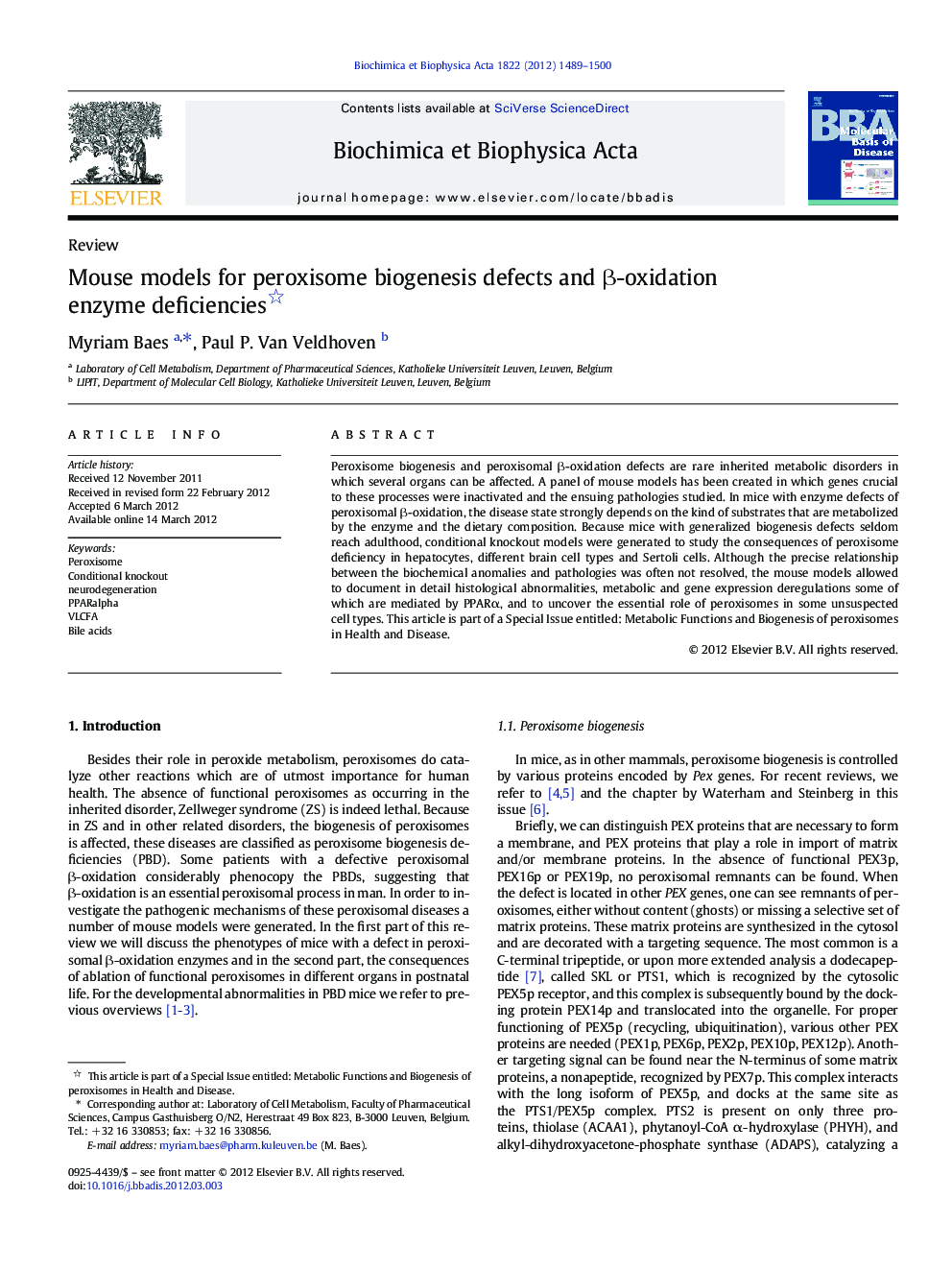| Article ID | Journal | Published Year | Pages | File Type |
|---|---|---|---|---|
| 1904922 | Biochimica et Biophysica Acta (BBA) - Molecular Basis of Disease | 2012 | 12 Pages |
Peroxisome biogenesis and peroxisomal β-oxidation defects are rare inherited metabolic disorders in which several organs can be affected. A panel of mouse models has been created in which genes crucial to these processes were inactivated and the ensuing pathologies studied. In mice with enzyme defects of peroxisomal β-oxidation, the disease state strongly depends on the kind of substrates that are metabolized by the enzyme and the dietary composition. Because mice with generalized biogenesis defects seldom reach adulthood, conditional knockout models were generated to study the consequences of peroxisome deficiency in hepatocytes, different brain cell types and Sertoli cells. Although the precise relationship between the biochemical anomalies and pathologies was often not resolved, the mouse models allowed to document in detail histological abnormalities, metabolic and gene expression deregulations some of which are mediated by PPARα, and to uncover the essential role of peroxisomes in some unsuspected cell types. This article is part of a Special Issue entitled: Metabolic Functions and Biogenesis of peroxisomes in Health and Disease.
►Inactivity of peroxisomal β-oxidation enzymes in mouse liver causes PPARα activation and metabolic deregulation. ►Complete loss of peroxisome function in hepatocytes impacts on mitochondria, energy homeostasis and ER. ►Peroxisomes and peroxisomal β-oxidation are necessary for male fertility and brain integrity. ►The mouse models recapitulate pathologies of patients with peroxisome biogenesis or β-oxidation defects.
